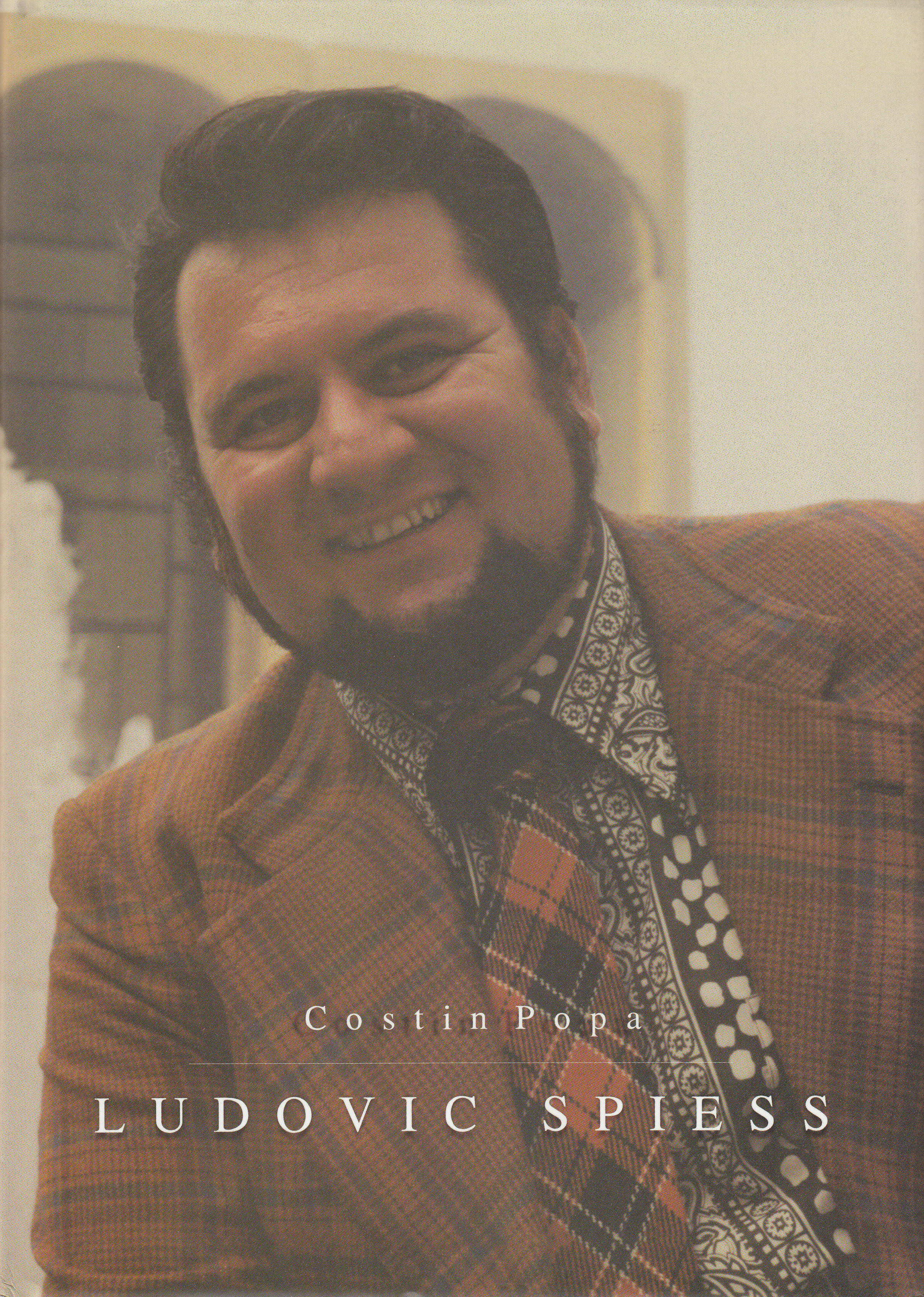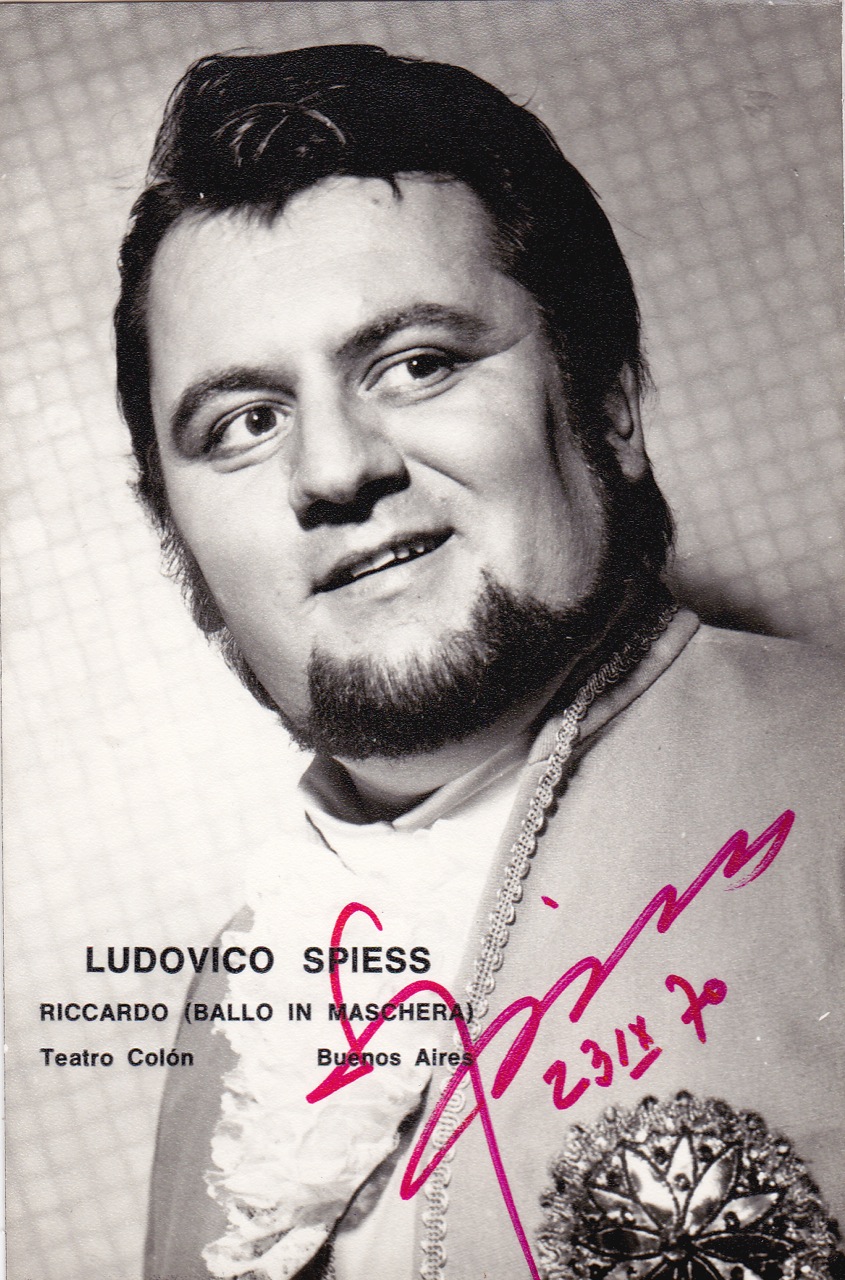
 (photo courtesy Charles Mintzer collection)
(photo courtesy Charles Mintzer collection)LUDOVIC SPIESS BY COSTIN POPA
Curtea Veche Publishing, Bucarest
www.curteaveche.ro
pp 344

 (photo courtesy Charles Mintzer collection)
(photo courtesy Charles Mintzer collection)
Ludovic Spiess enjoyed an impressive career as a tenor with a dramatic voice and appreciable artistry for 14 years before being forced to give up because of damaged vocal cords; he later became minister of culture in the post-Communist government in the early 1990s and was director of the Romanian Opera from 2001 until 2005.
Spiess made his stage debut as the Duke of Mantua in Rigoletto at the Romanian city of Galati in 1962, and won singing competitions in Toulouse, Rio de Janeiro and s’Hertogenbosh and made his first appearance as Cavaradossi in Tosca at the Bucharest Opera two years later. He also sang operetta for a couple of seasons. For Electrecord he even recorded the hits of Francis Lopez the man who was to Luis Mariano what Léhar was to Tauber. Spiess was discovered by Ioan Holender and brought to the West, especially Germany. According to Holender in his memoirs Spiess was the first 'modern' singer to audition in Bayreuth with something else (Vesti la giubba) besides the Wagnerian repertoire.
In 1967 Herbert von Karajan discovered his talents and invited him to the Salzburg Festival to appear as Dmitri in Mussorsgsky's Boris Godunov, a performance recorded by Decca.
The following year Spiess joined the Zurich Opera, where he remained as principal tenor for some years. He had a big success at the Vienna Opera in Smetana's Dalibor and then as Radames in Aida, taking the role to the Met in New York in 1971 and Covent Garden two years later.
His career also took him to Buenos Aires, the Stuttgart Opera, the Kirov, the Bolshoi, the summer festival at the Verona Arena and the Bregenz Festival, where he sang another of his favourite parts, Don José in Carmen. His other roles included Calaf in Turandot, Florestan in Fidelio and Lohengrin.
As well as appearing on the opera stage, Spiess was celebrated as a concert artist. A couple of years ago, BBC Legends issued a recording him at the Festival Hall singing in Mahler's Das Lied von der Erde in 1975 with Janet Baker and conducted by Rudolf Kempe; it is a fair souvenir of his singing, which was notable for its heroic quality, flexibility and expressiveness. Spiess recorded for Electrecord, Decca, Electrola and Ariola.
After giving up singing, Spiess briefly served as culture minister in the Iliescu government. He returned to music as chief administrator of the National Opera from 2001 to 2005. But his management skills came under heavy criticism during the period, which was marked by strikes over low pay.
This recently published large and heavy book (in Rumanian) is a de luxe edition with many photographs from the family archive and as Rumanian isn’t easy to read for most of us these form the main interest of this magnum opus.
The numerous photos include personal and family photos, stage photos, photos from programs and theatre posters all in a chronological order from his birth to his later years. Final chapters include dedications from his wife Gerda -a former pianist- and colleagues such as Christa Ludwig, Giuseppe Taddei, Georges Pretre etc. There’s also a full chronology (1962-1982) consisting of 155 pages illustrated with photos and reviews. An extended discography, filmography and bibliography is included as well. The book concludes with a list of roles he sang and the operas he directed when in charge of the National Opera.
RvdB